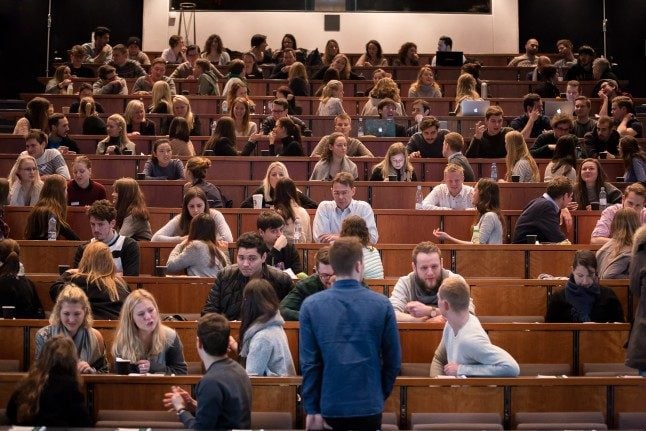If you want an education in a city renowned for its academic excellence with a bustling (and safe) student life, Stockholm University is right up your street.
All sounds good but first things first, is the education up to scratch?
We thought you were going to ask about the nightlife first!
All in good time. What kind of education can I expect?
Well, Stockholm University has been ranked as one of the top 50 universities in Europe. It attracts some of the finest minds from around the globe to work as lecturers and in research. Oh, and several of the researchers at Stockholm University are members of the committees that elect the Nobel Laureates each year.
Find out more about Stockholm University
Sounds fancy. Do I need to wear a tuxedo?
You do if you’re lucky enough to attend the Nobel banquet in Stockholm. But, casual clothes are just fine for life on campus.
And how is life on campus? Good programmes on offer?
Campus life at Stockholm University is vibrant and welcoming, which is to be expected given the diversity of programmes on offer! There are over 70 programs taught in English from the fields of science, humanities, social sciences and law. Check out the range of courses here.
So what can I expect when I enrol at Stockholm University?
You will be in the hub of an academic environment with direct access to top researchers in your field. Students get the best of both worlds as education and research are closely linked on campus. Independent thinking to solve problems is positively encouraged; traits that are de rigueur if you are to succeed and thrive in your international career.
Let's cut to the chase here, what are my job prospects going to be after I complete my course?
Rather good actually. According to the Global University Employability Ranking, graduates from Stockholm University are the most popular amongst employers in the Nordic region. The university was ranked first in Sweden and 45th globally for educating graduates ready for the workplace. Stockholm University was also ranked number one in the Nordics, before the University of Copenhagen.
Ah yes, the age-old debate between Stockholm and Copenhagen…
We're biased of course but Stockholm holds the unofficial title ‘Capital of Scandinavia’. It’s an innovation hotspot that’s home to start-up tech giants such as Spotify, Mojang and King and has everything on tap for students ranging from nightlife to great museums. Not to mention lots of stunning architecture and plenty of green space.
Find out more about Stockholm University
Green space, you say. Does that I mean I need a bike?
Stockholmers are among the keenest bikers in Europe but even if you just fancy a walk you don't have to go far; you are never more than 300 meters away from a park in the Swedish capital. Better still, Stockholm University's campus is located in the Royal National City Park, which is right on the doorstep of the city centre.
 Yes, people in Stockholm still cycle in the winter! Credit: Niklas Björling, Stockholm University
Yes, people in Stockholm still cycle in the winter! Credit: Niklas Björling, Stockholm University
Much going on once you hop off your bike?
Plenty. Stockholm has an abundance of world-class museums and attracts lots of top international musical talent to perform here. Oh, and did we mention the city is an archipelago? So you’re nearly always surrounded by water and in the warmer months can hop on a boat to explore the beautiful nearby islands or ice-skate during the winter. And as a member of the student union you’ll get discounts on cinema tickets, gym memberships and plenty more besides.
A good education and a lively student city sounds like a safe bet.
Most certainly and speaking of safety, Stockholm has been rated as the safest city in Europe and in 2017 was ranked as the world's eight safest city.
I’m sold! Where do I apply?
You can find out more about applying to Stockholm University right here.
This article was produced by The Local Creative Studio and sponsored by Stockholm University.



 Please whitelist us to continue reading.
Please whitelist us to continue reading.